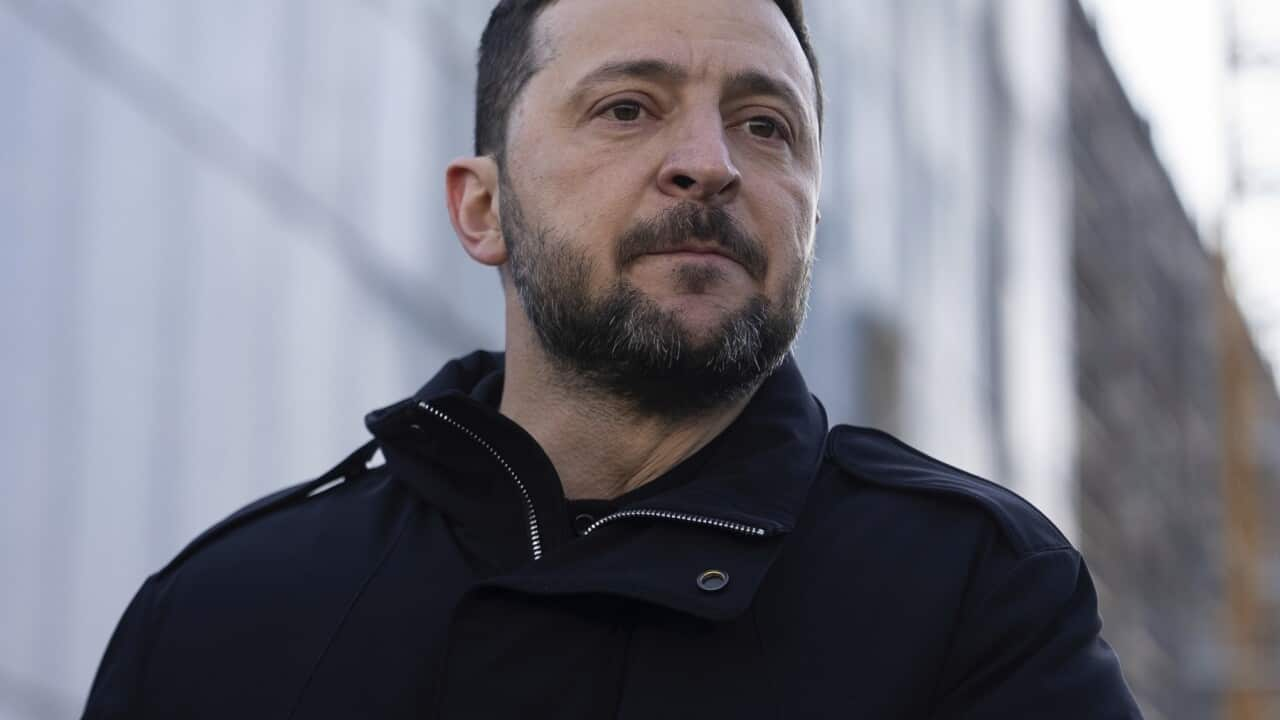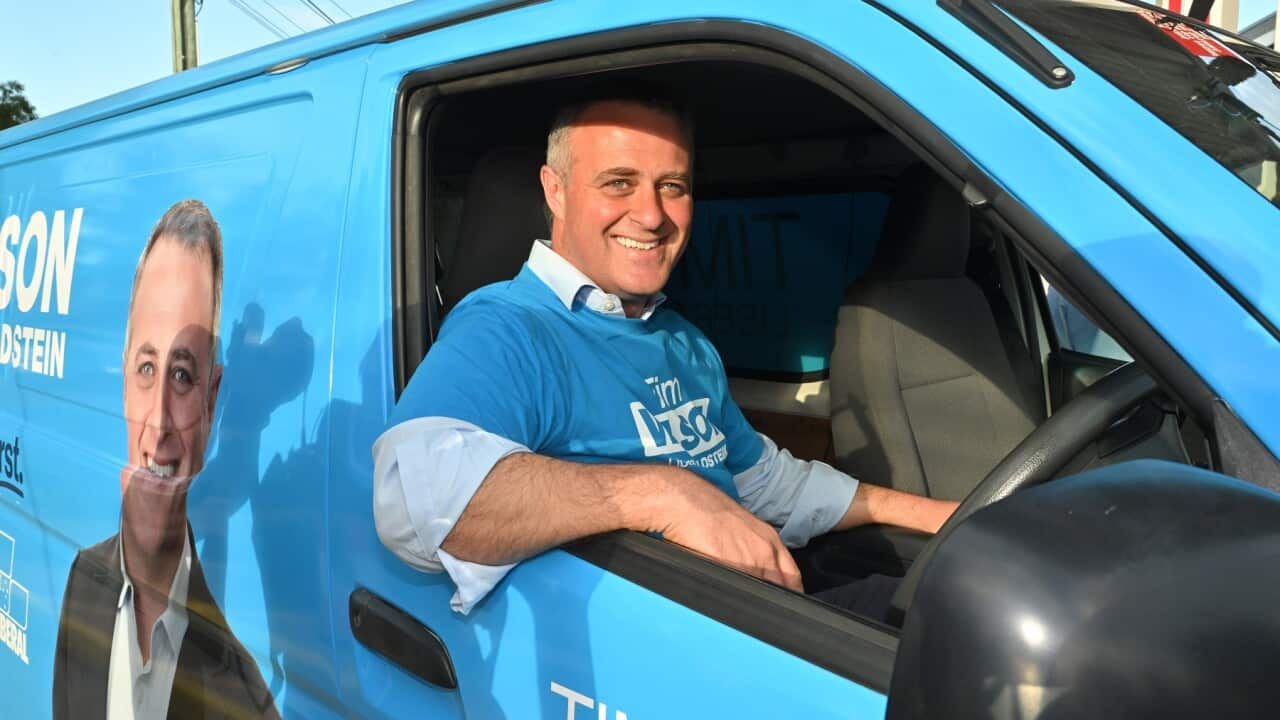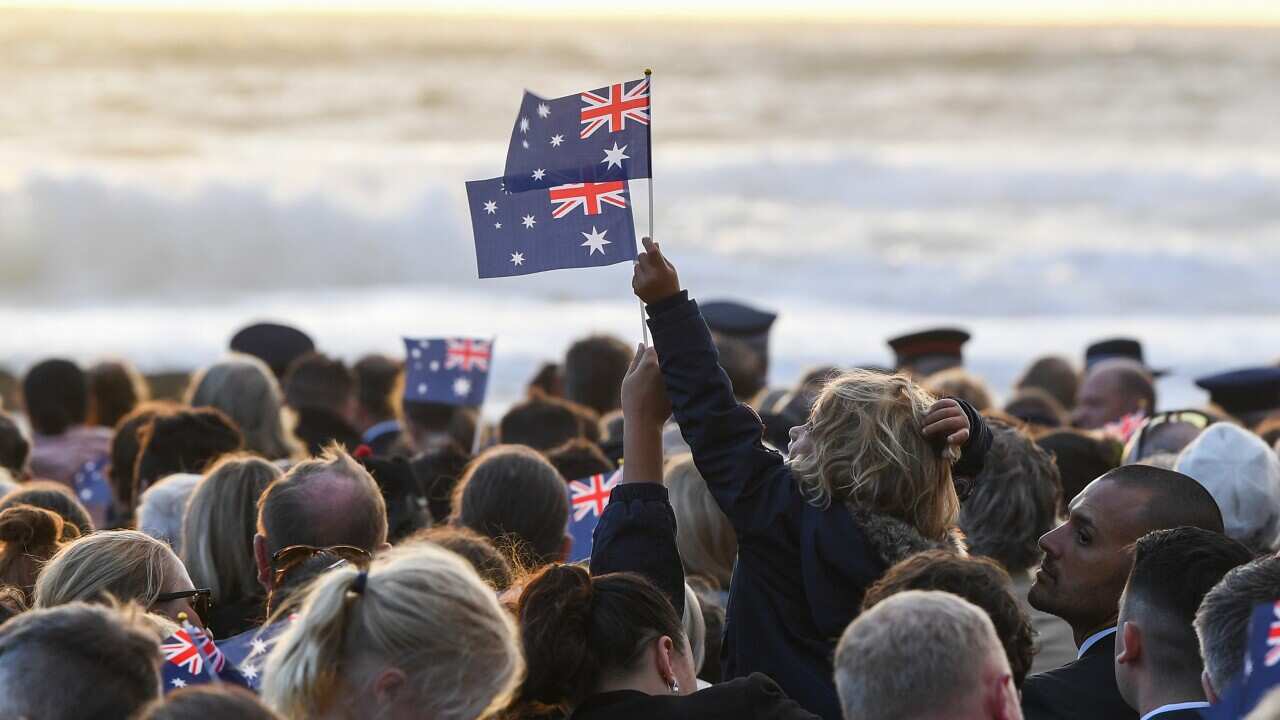TRANSCRIPT
Three years after Russian President Vladimir Putin waged his full-scale invasion of Ukraine, it appears the end of the conflict may be in sight.
However, the terms of any peace agreement are highly contested.
Less than a month after beginning his second term as US President, Donald Trump revealed his strategy to end the conflict.
In one fell swoop, Mr Trump ended Russia's diplomatic isolation, with a 90-minute phone call to Mr Putin where he agreed to negotiate a ceasefire to end the fighting.
Mr Trump says during the call he told Mr Putin he was "OK" with Ukraine not having NATO membership - and that it was "unlikely" that Ukraine would win back territory seized by Russia in 2014.
The only problem was he made those remarks without consulting Ukraine or NATO allies.
Speaking to leaders at the Munich Security Conference, Mr Zelenskyy says Ukraine would never accept any peace deals reached behind its back or without Ukraine's involvement.
He says it's time for Europe to go it alone.
"Let's be honest. Now, we can't rule out the possibility that America might say no to Europe on an issue that threatens it. Many leaders have talked about Europe that needs its own military. An army, an army of Europe (clapping) And I really believe the time has come."
The NATO political and military alliance was formed in 1949, after World War Two during the Cold War, to provide collective security against the Soviet Union.
The United States, Canada, and several Western European nations were the founding nations - and today, the alliance has 32 member countries across Europe and North America.
The arrangement allows for military co-operation within NATO, but governments have so far rejected various calls for the creation of a single European army over the years, arguing that defence is a matter of national sovereignty.
Meanwhile, a 40-minute discussion on the sidelines of the conference between Mr Zelenskyy and US vice-president JD Vance has not resulted in any major announcement on a way out of the deadliest war in Europe since World War Two.
Hours before the meeting, Mr Zelenskky told conference attendees a drone with a high-explosive warhead hit the protective confinement shell of the Chernobyl Nuclear Power Plant in the Kyiv region.
"It was a modified Shahid drone. Russian drone. Technology Iran passed on to Russia is war has carried at least 15kg of explosives. And we see this as a deeply symbolic move by Russia, by Putin."
The strike punched a hole in the protective shell and briefly started a fire.
The International Atomic Energy Agency confirmed the damage.
The Kremlin denied it was responsible.
Kremlin spokesman Dmitry Peskov says he has nothing to say on the subject of a peace deal, but says further communication has been had between staff of the leaders of Russia and the US.
Further details on Mr Trump's strategy on an end to the conflict in Ukraine came from US official Keith Kellogg.
Donald Trump's special envoy for Ukraine and Russia, he told the global security conference that he envisions the US would act as an intermediary in peace talks, with Ukraine and Russia as the two protagonists.
He says Ukrainians would be at the negotiating table - but not other European leaders.
"My definition at the table when you're actually sitting down there and you know, to me it doesn't mean the interests are not taken part of, they are not considered, they're not used, they're not developed. That means you are at the table, you have an ability, you have the input. But when you got those three, well really two engaged partners with, you got Russia and you got Ukraine fighting right now and President Trump coming in differently to basically be, for lack of a better term, we only used terms like an interlocutor or mediator."
He says a peace plan from Mr Trump could come within days or weeks.
"Well, you know, to me, there's going to have to be things like territorial concessions as well. Some of it is unrealistic to expect where you'd want go to. But it's territorial. It's some territorial. It could be engagement of refusing to use force, without the use of force into the future from a political side. He's not going downsize his military forces, hopefully get rid of it. What we're going to try to do is basically force him into action - what you want to do is force him to actions maybe he's uncomfortable with."
Trump administration officials have made clear in recent days that they expect European allies in NATO to take primary responsibility for the region as the US now has other priorities, such as border security and countering China.
Chinese Foreign Minister Wang Yi used his speech at the conference to say he does see a role for Europe - and all stakeholders - to participate in the peace talks.
The President of the Czech Republic, Petr Pavel, says it has become clear that the US is taking a different approach to its role in global affairs and in Europe - and world leaders need to adjust and make their own plans.
"Most of these things were a cold shower or shakedown (a wake up call), which helps us get some more self-awareness. We can finally grow up. Show that we are able to take responsibility. And act accordingly. And some of the measures highlighted by representatives of the European Union gives me hope that we are on the right track; to be much more flexible and faster in our decisions that are so badly needed for Ukraine."
France is discussing with its allies holding an informal summit of European leaders in Paris to discuss Ukraine within 24 hours.
Denmark's Prime Minister, Mette Frederiksen, says it is important that European leaders take strong and decisive action - and avoid anything that looks like appeasement to Russia.
"I have never believed that the war in Ukraine is primarily about Ukraine. The war in Ukraine is about Russia. It is about Russia's imperial dreams. It is about their wish and their will to take decisions on European questions. And we cannot allow them to do it. So we have to stick to strategy. And the strategy is to win the war. It is not easy. It is not beautiful. It is not nice. It is not all the good things in the world. But it is necessary."













